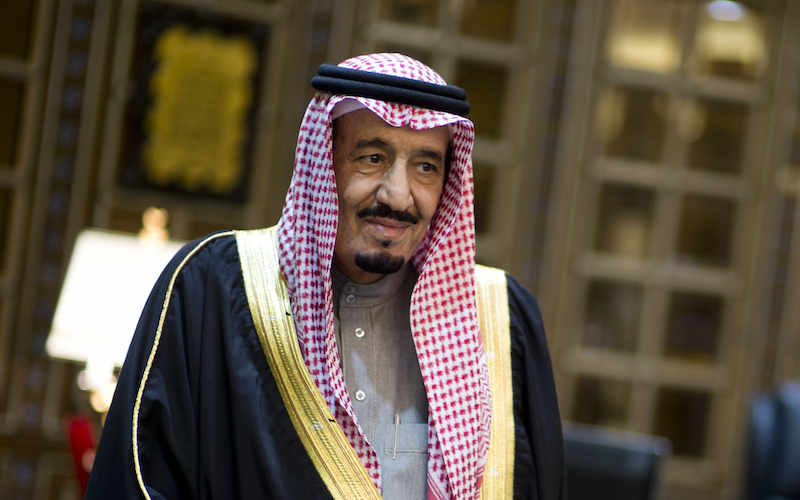
Saudi Arabia’s Shrewd Gamble
The government of Saudi Arabia has been roundly criticized for its brazen attempt to retain oil market share while driving the price of oil into the ground, its beheading of the Shi’ia cleric Nimr al-Nimr, and its war in Yemen. These criticisms are grounded in a Western (read non-Saudi) view of the world. From the perspective of the Saudi government and ruling Al Saud family, they were all carefully crafted. Rather than simply rejecting these actions in stark black and white terms, consider them in context.
The Saudi world view sees the kingdom in the process of being surrounded by Iran and its proxy forces. Looking on a map from the Saudi perspective, Saudi Arabia is in the process of being enclosed by states that either seek to reduce its influence in the region or desire the destruction of the House of Saud. Iraq and Yemen have become proxy states of Iran, on its northern and southern flank. Jordan is in a weakened state and vulnerable to jihadist extremist forces – some of the same groups that seek the overthrow of the Saudi government.
In addition, the tremendous growth in the development of shale oil and oil sands as alternative sources of the world’s oil has all of the world’s traditional oil producing nations that are not pursuing such production alternatives in a defensive posture.
The kingdom’s decision not to alter its production posture is a calculated business decision that many commercial entities make every day.
Saudi Arabia is bearing the consequences of that decision, just as the rest of the world’s oil producers are, but it is taking a bold gamble with its own future in the process. Should the price of oil remain seriously depressed for several more years, the government will surely deplete a substantial portion of its foreign exchange reserves, and given its failure to diversify revenue sources away from oil, it may well find itself in serious trouble of its own making. The government has already removed subsidies on domestic gasoline and is being forced to reduce some of the lavish entitlements it has bestowed upon its citizens for decades.
That is the most dangerous part of the game it is playing, since so many Saudis rely on those entitlements to survive. And with 15% of Saudi citizens being Shi’ite, mostly residing in the Eastern Province (where the majority of the country’s oil reserves and installations are located) and already inclined to oppose the Wahhabi government, the stage is set for opposition to the government to rise within the kingdom. That is why Nimr al-Nimr was assassinated, and why the Saudi government has increased its repression inside the kingdom and tightened its grip in recent months.
So the government of Saudi Arabia is feeling besieged – inside and outside of its borders – whether of its own making or the result of factors outside of its control. That said, how many Middle Eastern monarchies would act any differently under such circumstances? Very few, if any. The goal is self-preservation, a characteristic that governments of all types around the world know well. Western observers may not like the Saudis’ tactics, but they understand its motives and objectives.
The Saudi government has taken a shrewd gamble. It is betting that the combination of its high stakes approach to market share, its take no prisoners approach to the Shi’ia question within its borders, its bold action in Yemen, and fighting proxy wars in neighboring stakes will be enough to keep the plethora of wolves at its doorstep at bay. It may well be right, because few countries in the world have the financial resources to put all these pieces in play at the same time and sustain the effort.
Of course, it will take more than money to make it all work. The war in Yemen will remain an open question for years to come. The proxy wars in the region’s nations may continue for decades. The kingdom’s Shi’ia citizenry will oppose the House of Saud ad infinitum. And the region’s collective battle against jihadist extremists is now a permanent fixture on the landscape.
The House of Saud is now all in. For it, the issue is survival, and on that basis, it is betting that the combination of its actions will ensure that it will endure for decades to come. There is a better than even chance they will be right.
This article was originally posted in The Huffington Post.
